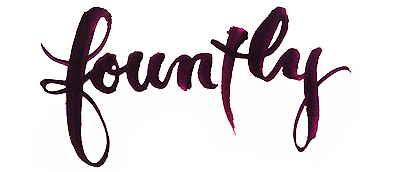Why I Work on Ads
Prior to working at Facebook, my whole career was spent working on consumer-oriented applications like Google Search, YouTube, and Tripod. I loved every minute of it. Working on things I personally used every day and that my friends and family loved inspired me to pour my heart and soul into my work every day.
Then about two years ago. I got a call from Facebook. They wanted me to come join the design management team. And get this...they wanted me to lead the business design efforts. Me? I had no experience in ads or business tools, no domain expertise. Could I do great work in this area? And if I could, would I be motivated to after all those years on the consumer side? I thought long and hard about it, and thankfully, I decided to jump into a steep learning curve and joined Facebook.
So what made me leave my role at YouTube to come lead the business design team at Facebook? Well, there are many reasons Facebook was appealing to me as a company. Its mission, its leaders, the respect that designers have throughout the company. Check, check, check! But why ads? Some people might think the work I do now is less interesting, less impactful, or less, well, sexy, but after a year and I half, I can tell you it's quite the opposite.
I knew that this role would be the biggest opportunity for me to have impact as a design leader, perhaps in the whole industry. And I’m not just referring to monetary impact, though it's always nice to hear your work mentioned on earnings calls. Fundamentally, it’s about creating positive change in the world, and growing as a designer in the process. The fact is, I think more designers should consider working on business-oriented applications. Let me explain why...
Designers need to understand the design of business and the business of design.
While I've spent most of my life working on consumer experiences, it has always bothered me when designers turn up their noses at the thought of working on or even understanding how the products they design are sustained as a business. Designers should understand the whole picture of what design can do to make a business successful. It's not just about building a great product; it's also about understanding the business models that sustain that experience, and I thought it was time that I put my money where my mouth is, so to speak. In addition, this kind of experience rounds out your skills a designer and design leader, and positions you well if you want to start your own company someday.
Designing for people different than yourself is harder, but it's fascinating and rewarding.
Designing for yourself and people like you is fun and intuitive and can inspire great work, but there are so many problems in the world that require designers to go beyond their own life experiences, to walk in others' shoes, and to provide solutions to meet those needs. In fact, I'd posit that designing for people different than yourself is the best way to really magnify your impact as a designer. Even consumer designers eventually grapple with the fact that designing for a global audience requires stepping outside our own experience. Just think of how much less progress we would make as a society if scientists only studied and developed cures for diseases they themselves suffered from. Or if architects didn't get out of their bubble to develop sustainable housing for people in a different socioeconomic bracket than their own?
As a curious person, it's challenging but fascinating to understand and empathize with others versus narrowly thinking about your own experience. In my case, these could include a CMO of a Fortune 500 company looking to launch a major new brand, a new grad media buyer working for a big ad agency managing a dozen clients and hundreds of ad campaigns, an artisan coffee shop owner hoping to bring more customers into her store, a non-profit development director looking to fund a new program, or a grocer selling fruit on a street in Mumbai. You need to work harder to understand these people and their needs, but when you do, you can design solutions infinitely better than what they've had before, and that's exciting and rewarding work. Because instead of the standard change aversion that often comes from changing consumer designs, what we often hear is, "Thank you! This is *so* much better than what we had before!" And that feels pretty damn good. If you are the kind of person who is giddy at the thought of studying the work flows of people in an occupation completely foreign to your experience, you are my people.
The vast majority of enterprise software is a travesty of bad design.
Every time I am forced to log in to a piece of typical enterprise software, I cringe. The bloat. The unnecessary complexity. The aesthetic horror. It's what most consumer software looked like before we woke up and understood that we deserved way, way better; we accepted bad design because we hadn't experienced anything better. But business users have yet to experience that awakening. Thankfully, we've raised the bar across the consumer industry over the past several years, and now it's time to raise the bar for business software, too. We deserve to have business tools that add enormous value, that work intuitively, and are beautiful. Yes, beautiful.
So now you know why I think more designers should get out of their comfort zone and challenge themselves by working on business applications. But why Facebook ads specifically?
The opportunity to reinvent advertising.
Facebook is poised to deliver the most innovative, engaging, personalized advertising people have ever experienced. We can personalize and humanize advertising in ways that no one else can. Many people claim to hate advertising, but the truth is, when the creative is great and when it's highly relevant to us, we love it. It ceases to be an ad, and just becomes great content. And I want to be part of the team that makes it happen at a global scale, and with a human touch.
Improving the measurement of advertising across the industry is a worthy goal.
Digital advertising measurement is fundamentally broken, and anyone deeply involved in this industry knows it. Our work to rebuild and redesign Atlas will democratize the digital advertising industry as it gives fair credit to all of the businesses and publishers who are helping advertisers succeed. There's currently a monoculture of advertising measurement that doesn't give full and fair credit to all of the players involved in helping businesses achieve their goals, whether it's launching a new brand, selling a product online or in a store, or getting people to download a new mobile app. The work Facebook is doing to create more accurate ways to measure online advertising will help the whole industry understand what works and why, and to give credit to the role that all businesses, even the small ones, can play in creating value.
Helping businesses market themselves better improves everyone's experience.
Business, brands, products and services are a critical part of the fabric of people's lives. They help people craft their sense of identity through the connections they forge, whether it's with a small local business, a movie they loved, or a clothing brand they admire. And they also help us navigate the world and the increasingly complex decision landscape before us. Where should I eat dinner tonight? What should I do this weekend? What should I do on my vacation? Connections between people and businesses will generate a lot of the information that we need to help answer these questions in meaningful ways.
I believe in the things that Google, YouTube and Facebook have done and will do to make the world a better place. And now, I get to help sustain and build upon that value in a whole new way. And as it turns out, like the years I spent on consumer products, I’m loving every minute of it. So that, my friends, is why I work on ads. Maybe you should, too.

